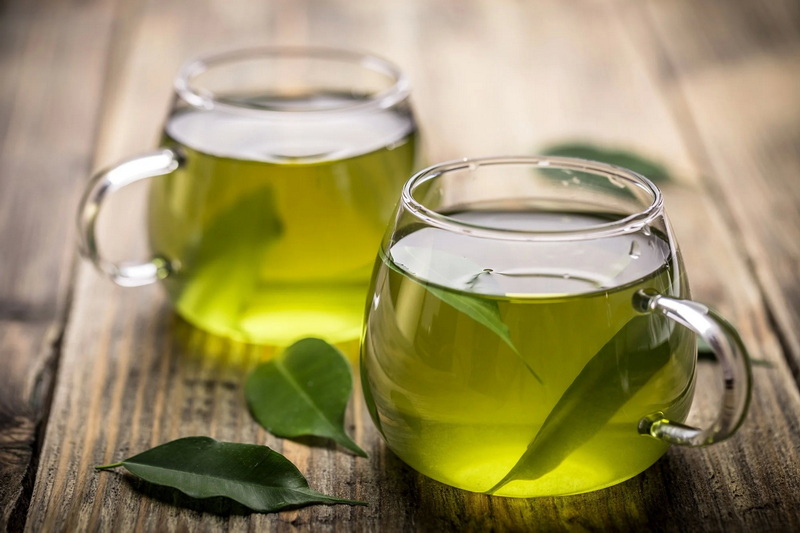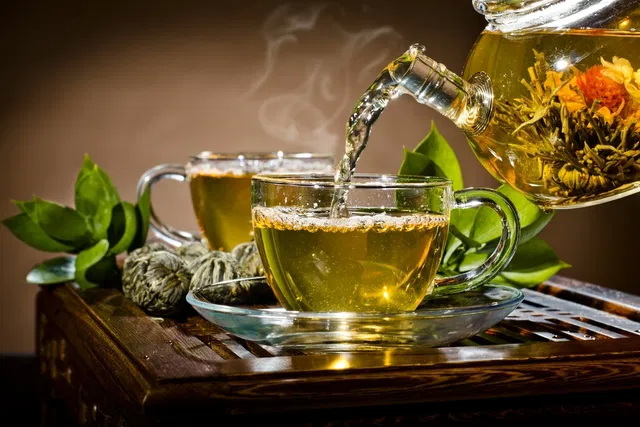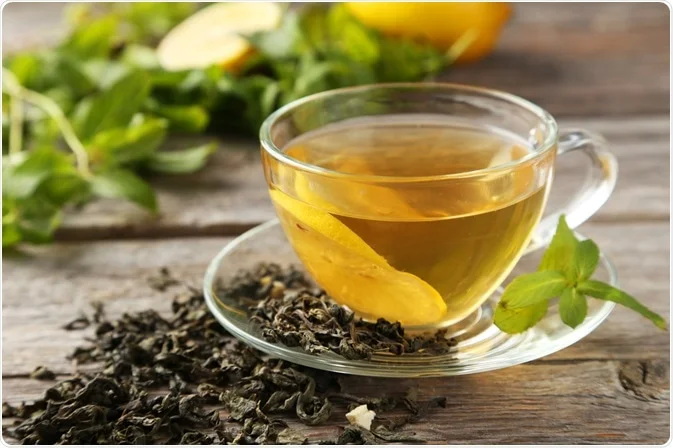Content Menu
● Understanding Green Tea Extract
● Caffeine Content in Green Tea Extract
>> Caffeine's Role in Addiction
● Is Green Tea Extract Addictive?
>> Factors Influencing Dependence
● Health Risks Associated with Excessive Consumption
● Recommended Dosage
● Additional Benefits of Green Tea Extract
>> Improved Metabolism
>> Enhanced Cognitive Function
>> Blood Sugar Regulation
>> Anti-inflammatory Effects
● Popular Forms of Green Tea Extract
● Potential Interactions with Medications
● Conclusion
● Related Questions
>> 1. What are the main health benefits of green tea extract?
>> 2. Can I consume too much green tea extract?
>> 3. How should I take green tea extract for optimal results?
>> 4. Are there any side effects associated with green tea extract?
>> 5. Is there anyone who should avoid taking green tea extract?
● Citations:
Green tea has long been celebrated for its numerous health benefits, ranging from weight loss to improved heart health. However, a question that often arises is whether green tea extract can be considered addictive. In this article, we will explore the components of green tea extract, its effects on the body, and whether it possesses addictive qualities.

Understanding Green Tea Extract
Green tea extract is derived from the leaves of the *Camellia sinensis* plant and is known for its high concentration of antioxidants, particularly catechins like epigallocatechin gallate (EGCG). These compounds are responsible for many of the health benefits associated with green tea, including:
- Antioxidant Properties: Protects cells from damage by free radicals.
- Weight Loss Support: May enhance fat burning and boost metabolic rate.
- Heart Health: Linked to lower cholesterol levels and improved cardiovascular function.
- Brain Health: Potentially beneficial in protecting against neurodegenerative diseases.
While these benefits make green tea extract appealing, it is essential to understand its active ingredients and how they might influence addiction.
Caffeine Content in Green Tea Extract
One of the primary components of green tea extract is caffeine. Although green tea contains less caffeine than coffee or black tea, it still contributes to the overall stimulant effects. Caffeine can lead to physical dependence in some individuals, resulting in withdrawal symptoms such as headaches, fatigue, and irritability when consumption is reduced or stopped.
Caffeine's Role in Addiction
Caffeine works by blocking adenosine receptors in the brain, which can increase alertness and reduce fatigue. Regular consumption can lead to tolerance, requiring more of the substance to achieve the same effects. While moderate caffeine intake is generally considered safe for most people, excessive consumption can lead to negative side effects, including:
- Anxiety
- Insomnia
- Increased heart rate
- Digestive issues

Is Green Tea Extract Addictive?
The consensus among health experts is that while green tea extract contains caffeine, it does not possess the same addictive qualities as substances like nicotine or hard drugs. The likelihood of developing a dependency on green tea extract is relatively low compared to other caffeinated beverages.
Factors Influencing Dependence
1. Individual Sensitivity: Some individuals may be more sensitive to caffeine and may experience withdrawal symptoms with reduced intake.
2. Consumption Patterns: Those who consume large quantities of green tea extract or other caffeinated products may develop a psychological dependence due to habitual use.
3. Health Benefits: The perceived health benefits of green tea extract may encourage continued use, but this does not equate to addiction.
Health Risks Associated with Excessive Consumption
While moderate consumption of green tea extract is generally safe for most individuals, excessive intake can lead to adverse effects. Some potential risks include:
- Liver Damage: High doses of green tea extract have been linked to liver toxicity in some cases.
- Gastrointestinal Issues: Excessive consumption can cause nausea, diarrhea, and stomach upset.
- Nutrient Absorption Issues: Green tea can inhibit iron absorption when consumed with iron-rich foods.
Recommended Dosage
Health professionals generally recommend consuming no more than 400 mg of caffeine per day from all sources. For green tea extract specifically:
- A typical dose ranges from 250 mg to 500 mg per day.
- It is best taken with food to minimize gastrointestinal discomfort.
Additional Benefits of Green Tea Extract
In addition to its antioxidant properties and potential weight loss benefits, green tea extract offers several other advantages:
Improved Metabolism
Studies have shown that green tea extract can enhance metabolic rate and promote fat oxidation. This effect makes it a popular supplement among those looking to lose weight or maintain a healthy weight.
Enhanced Cognitive Function
Research suggests that the combination of caffeine and L-theanine found in green tea can improve cognitive performance and attention. L-theanine promotes relaxation without drowsiness, which may help counteract some of the jittery effects associated with caffeine.
Blood Sugar Regulation
Green tea extract may also play a role in regulating blood sugar levels. Some studies indicate that it can improve insulin sensitivity and lower blood sugar levels after meals.
Anti-inflammatory Effects
The polyphenols in green tea have anti-inflammatory properties that may help reduce inflammation throughout the body. This could potentially benefit conditions such as arthritis and other inflammatory diseases.
Popular Forms of Green Tea Extract
Green tea extract is available in various forms, including:
- Capsules: Convenient for those who prefer a measured dose without having to brew tea.
- Powdered Form: Often used in smoothies or as an ingredient in various recipes.
- Liquid Extracts: Can be added to beverages for a quick boost of antioxidants.
Each form has its advantages, depending on personal preferences and lifestyle.
Potential Interactions with Medications
It's essential for individuals considering green tea extract supplementation to be aware of potential interactions with medications. Some interactions include:
- Blood Thinners: Green tea may enhance the effects of anticoagulants like warfarin.
- Stimulants: Combining green tea extract with other stimulants can increase heart rate and blood pressure.
- Certain Antidepressants: There may be interactions that affect serotonin levels when combined with specific antidepressants.
Conclusion
In summary, while green tea extract does contain caffeine and can lead to mild dependence in some individuals, it is not classified as an addictive substance in the same way as nicotine or hard drugs. The health benefits associated with moderate consumption far outweigh the potential risks when taken responsibly. As always, individuals should consult healthcare professionals before starting any new supplement regimen, especially if they have underlying health conditions or are taking other medications.

Related Questions
1. What are the main health benefits of green tea extract?
Green tea extract offers numerous health benefits including antioxidant protection, weight loss support, improved heart health, enhanced cognitive function, blood sugar regulation, and anti-inflammatory effects.
2. Can I consume too much green tea extract?
Yes, excessive consumption can lead to adverse effects such as liver damage, gastrointestinal issues like nausea or diarrhea, and nutrient absorption problems.
3. How should I take green tea extract for optimal results?
It's recommended to take between 250 mg and 500 mg per day with food to minimize gastrointestinal discomfort while maximizing absorption.
4. Are there any side effects associated with green tea extract?
Potential side effects include anxiety, insomnia due to caffeine content, digestive issues if taken on an empty stomach, and possible interactions with certain medications.
5. Is there anyone who should avoid taking green tea extract?
Individuals who are sensitive to caffeine, pregnant or breastfeeding women, those with liver conditions or certain medical conditions should consult their healthcare provider before taking green tea extract supplements.
Citations:
[1] https://timesofindia.indiatimes.com/life-style/health-fitness/diet/have-you-unknowingly-become-a-green-tea-addict/articleshow/61832849.cms
[2] https://www.webmd.com/vitamins/ai/ingredientmono-960/green-tea
[3] https://pmc.ncbi.nlm.nih.gov/articles/PMC8830767/
[4] https://www.alamy.com/stock-photo/green-tea-extract.html
[5] https://www.youtube.com/watch?v=6-2FJMtvcNA
[6] https://www.healthline.com/nutrition/10-benefits-of-green-tea-extract
[7] https://www.mountsinai.org/health-library/herb/green-tea
[8] https://www.freepik.com/free-photos-vectors/green-tea-extract
[9] https://www.youtube.com/watch?v=eMuE16vLV_s
[10] https://pmc.ncbi.nlm.nih.gov/articles/PMC2855614/
[11] https://health.clevelandclinic.org/green-tea-extract-a-better-way-to-boost-energy-or-not
[12] https://www.istockphoto.com/de/bot-wall?returnUrl=%2Fde%2Fphotos%2Fgreen-tea-extract






























